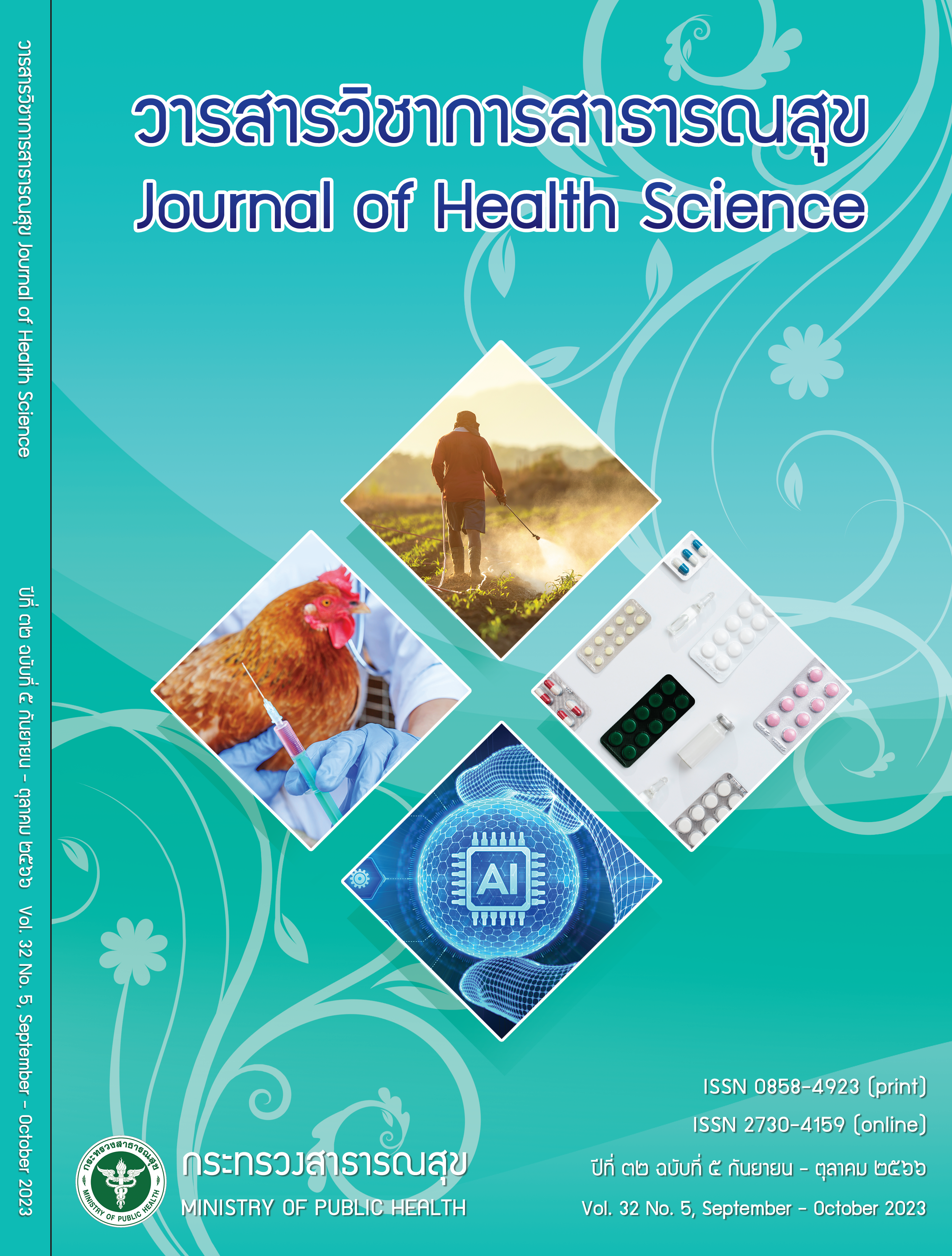Artificial Intelligence in Nursing Practices: Addressing Ethical Concern
Keywords:
artificial intelligence, nursing, ethical, bias, privacyAbstract
The use of artificial intelligence (AI) is growing rapidly and being utilized within the healthcare system, including nursing practice, with the purpose of enhancing patient care efficiency, nursing outcomes, and overall public quality of life. The aim of this article is to review the literature on AI in nursing practice as well as the ethical concerns involved. This will be accomplished by scrutinizing pertinent articles and academic papers on the following subjects: the definition of AI, the function of AI in nursing, the ethical issues in nursing practice and discussion and suggestion. AI implies the development of machines that can imitate human intelligence to learn, reason, and make decisions like humans. The roles of AI in nursing consist of (1) overseeing and diagnosing patient symptoms, (2) managing drug dispensation, (3) educating patients, and (4) managing nursing workflow. According to AI in nursing practice, the ethical considerations include (1) bias and discrimination, (2) privacy and confidentiality, (3) accountability, (4) autonomy and patient-centered care, and (5) informed consent. Integrating artificial intelligence (AI) into nursing practice cannot neglect the nursing purpose of patient care, which is to provide humanistic care. Nurses should be concerned about the impact of AI on the nursing process and the outcomes of patient care. Using AI without careful consideration may lead to ethical problems in nursing practice. It is recommended that (1) users and stakeholders should be deliberated, (2) policymakers should address ethical issues, and (3) continuing education for nurse practitioners and integration of AI into nursing education should be provided for practicing nurses.
Downloads
References
Copeland BJ. MYCIN. Encyclopedia Britannica [Internet]. 2018 [cited 2023 Apr 14]. Available from: https:// www.britannica.com/technology/MYCIN
สุดตา ปรักกโมดม, สัญชัย ฉายโชติเจริญ, พงศ์ธารา วิจิตเวชไพศาล. ‘ปัญญาประดิษฐ์’ มิตรหรือศัตรู. Thai J Anesthesiol 2019; 45(1);34-8
Nancy R. How artificial intelligence is changing nursing. Nursing Management 2019;50(9):30-9.
Bokolo A Jnr. Use of telemedicine and virtual care for remote treatment in response to COVID-19 pandemic. J Med Syst 2020;44:132.
Heidarizadeh K, Rassouli M, Manoochehri H, Zagheri M, Reza T, Ghorbanpour K. Effect of electronic report writing on the quality of nursing report recording. Electronic Physician 2017;9(10):5439-45.
หทัยชนก บัวเจริญ, วริยา จันทร์ขำ. การใช้นวัตกรรมทาง สุขภาพด้วยปัญญาประดิษฐ์ในการพยาบาล. วารสารพยาบาล 2563;69(4);60-7.
Stokes F, Palmer A. Artificial intelligence and robotics in nursing: ethics of caring as a guide to dividing tasks between AI and humans. Nurs Philos 2020;21(4):e12306.
Martinez-Martin N, Dasgupta I, Carter A, Chandler JA, Kellmeyer P, Kreitmair K, et al. Ethics of digital mental health during COVID-19: crisis and opportunities. JMIR Ment Health 2020;7(12):e23776.
ANA Center for Ethics and Human Rights. The ethical use of artificial intelligence in nursing practice [position statement]. Silver Spring, MD: American Nurses Association; 2022.
McCarthy J. What is artificial intelligence? Stanford, CA: Stanford University; 2007.
Möllmann NR, Mirbabaie M, Stieglitz S. Is it alright to use artificial intelligence in digital health? A systematic literature review on ethical considerations. Health Informatics J 2021;27(4):14604582211052391.
Russell S, Norvig P. Artificial intelligence: a modern approach. 3rd ed. Upper Saddle River, NJ: Pearson; 2009.
Shillan D, Sterne JAC, Champneys A, Gibbison B. Use of machine learning to analyse routinely collected intensive care unit data: a systematic review. Crit Care 2019; 23(1):284.
Hanson CW, Marshall BE. Artificial intelligence applications in the intensive care unit. Crit Care Med 2001; 29(2):427–35.
Ni Y, Lingren T, Hall ES, Leonard M, Melton K, Kirkendall ES. Designing and evaluating an automated system for real-time medication administration error detection in a neonatal intensive care unit. J Am Med Inform Assoc 2018;25(5):555-63.
Jun K, Oh S, Lee DW, Kim MS. Management of medication using a mobile robot and artificial intelligence. In: 2021 31th IEEE International Conference on Robot and Human Interactive Communication (RO-MAN). Jeju (Korea): IEEE; 2022. p. 652-9.
Christoforou EG, Avgousti S, Ramdani N, Novales C, Panayides AS. The upcoming role for nursing and assistive robotics: opportunities and challenges ahead. Front Digit Health 2020;2:585656.
Davenport T, Kalakota R. The potential for artificial intelligence in healthcare. Future Healthc J 2019;6(2):94- 8.
Clancy TR. Artificial intelligence and nursing: the future is now. J Nurs Adm 2020;50(3):125-7.
Kluge EHW. Artificial intelligence in healthcare: ethical considerations. Healthcare Management Forum 2020; 33(1):47-9.
Solimini R, Busardò FP, Gibelli F, Sirignano A, Ricci G. Ethical and legal challenges of telemedicine in the era of the COVID-19 Pandemic. Medicina (Kaunas) 2021;30;57(12):1314.
European Commission. Ethics guidelines for trustworthy AI. Luxembourg: European Union; 2019.
Koh WQ, Vandemeulebroucke T, Gastmans C, Miranda R, Van den Block L. The ethics of pet robots in dementia care settings: care professionals’ and organisational leaders’ ethical intuitions. Front Psychiatry 2023; 14:1052889.
Downloads
Published
How to Cite
Issue
Section
License

This work is licensed under a Creative Commons Attribution-NonCommercial-NoDerivatives 4.0 International License.







